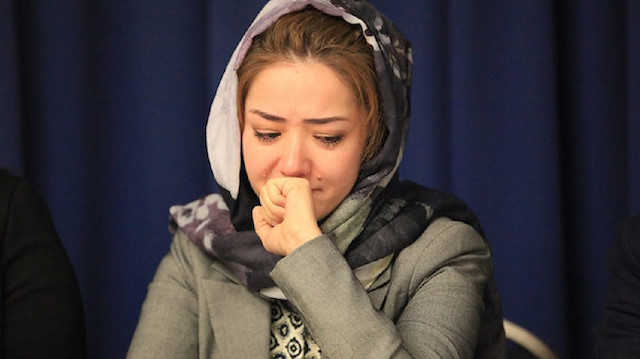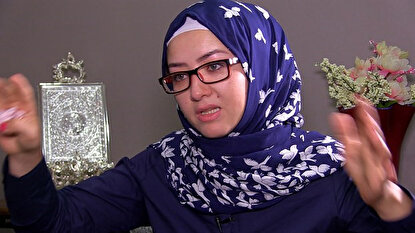
Mihrigul Tursun recounts shocking experience of torture, surveillance and forced ingestion of unknown medicines at a Chinese internment camp
Mihrigul Tursun, a 29-year-old Uyghur Muslim, said the torture and abuse at one of the internment camps Chinese authorities use to detain 1.5 million people from religious minorities was so bad she begged for death.
“I thought that I would rather die than go through this torture and begged them to kill me,” she said at the National Press Club in Washington.
After her second arrest in 2017, Tursun said she was interrogated for four consecutive days without sleep, had her hair shaved, was electrocuted and also forced into an intrusive medical examination.
Tursun moved from China to Egypt to study, and met her husband there. She had triplets and returned to China in 2015 to see her family.
She was immediately arrested and her children were taken from her. Three months later, she was released only to find that one of her triplets had died and the others had developed health issues.
Two years later, she was arrested again and then released only to be arrested for a third time.
Tursun said she shared a prison cell with 60 other women for three months, during which nine of her cellmates died. The women had to take turns sleeping and even use the bathroom while being watched by surveillance cameras.

“The authorities put a helmet-like thing on my head, and each time I was electrocuted, my whole body would shake violently and I would feel the pain in my veins,” Tursun said, referring to an incident when she was made to sit a high chair and her legs and arms were shackled.
“I don’t remember the rest. White foam came out of my mouth, and I began to lose consciousness. The last word I heard them saying is that you being a Uighur is a crime,” she added.
Tursun said the facility employees forced the inmates, including herself, to take strange medication, some of which caused them to faint. The inmates were also made to drink a white liquid that caused some women to bleed and others to stop menstruating.
Ultimately Tursun was freed so she could take her children to Egypt but she was directed to return to China. Once she arrived in Egypt, she reached out to the U.S. and has resided in Virginia since September.
Many refer to China’s Xinjiang Uighur Autonomous Region -- home to many ethnic minority groups, including Turkic Uighur people -- as East Turkestan.
They believe that the Uighur are among a number of Turkic tribes that inhabit the region, and consider it to be part of Central Asia, not China.
Established under the pretext of “political reeducation” for China’s Muslim population, Beijing has amped up its construction of detention camps in the past three months, expanding them by an additional 700,000 square meters, according to satellite imagery.
China’s Muslim incarceration camps have attracted heavy criticism from the international community as Beijing continually denied their existence and repeatedly rejected allegations of abuses against the country’s Uighur minority for years, opting to call them “vocational camps” instead.
Xinjiang region is home to around 10 million Uighurs. The Turkic Muslim group which makes up around 45 percent of the population of Xinjiang, has long accused China’s authorities for cultural, religious and economic discrimination.













